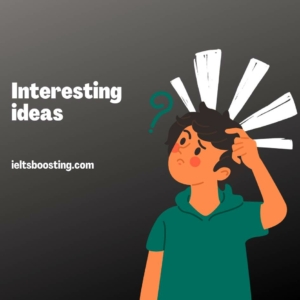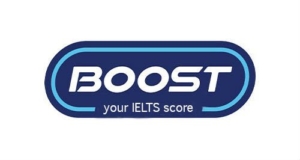Describe a person who always has interesting ideas or opinions
You should say for Describe a person who always has interesting ideas or opinions
Who this person is
What this person does
How you knew him/her
And explain why you think his/her ideas or opinions are interesting

Describe a person who always has interesting ideas or opinions
Answer for Describe a person who always has interesting ideas or opinions
I’d like to talk about an accomplished entrepreneur usually has interesting idea, and his name is Yuki. I first had the opportunity to know him when I decided to learn Japanese at his language school in Vietnam, and fortunately, I had the privilege of learning in his class.
He’s a highly successful businessperson who has made a significant impact in the field of education. He founded a chain of schools dedicated to teaching Japanese in Vietnam and sending Vietnamese students to Japan, with hundreds of teachers and thousands of students. His school is renowned for its Japanese conversation skills.
What makes Mr. Yuki’s ideas and opinions particularly captivating is his innovative approach to teaching Japanese. While many educators adhere to conventional methods, Mr. Yuki has introduced a fresh perspective to language instruction. He creates engaging stories to help students remember kanji, a challenging subject for many Japanese learners. For example, he associates the word ‘relaxation’ with the suggestion that people lean toward a tree, making it easier for us to remember instantly.
Explore more: ielts speaking part 2

Describe a person who always has interesting ideas or opinions
Part 3-Describe a person who always has interesting ideas or opinions
When do you think children start to have their own opinions?
Children typically begin to express their own opinions around the age of 3 or 4 when their cognitive and language skills undergo significant development. At this stage, they might express preferences for certain activities, toys, or even express simple likes and dislikes. For instance, a child might express a preference for playing with building blocks over drawing.
- Express: To convey (a thought or feeling) in words or by gestures and conduct.
- Opinions: A view or judgment formed about something, not necessarily based on fact or knowledge.
- Cognitive: Relating to the mental action or process of acquiring knowledge and understanding through thought, experience, and the senses.
- Language skills: The ability to use language effectively and appropriately in different contexts, including speaking, writing, listening, and understanding.
- Significant development: A considerable or notably large change or growth in someone or something.
- Preferences: A greater liking for one alternative over another or others.
- Activities: Things that a person does, especially for enjoyment or as a job.
- Expressing simple likes and dislikes: The basic act of showing favor or disfavor towards something.
- Building blocks: Literal blocks used for construction play, but can also metaphorically refer to basic units or essential parts of something.
Are children’s opinions influenced by their parents?
Yes, children’s opinions are often influenced by their parents. During their formative years, children look to their parents as primary role models and sources of guidance. Parents shape their children’s values, beliefs, and attitudes through direct teachings and subtle cues in everyday interactions. For instance, a child growing up in a household that values environmental conservation is likely to adopt similar views
- Influenced: Being affected or changed by someone or something.
- Formative years: A period in a person’s life, usually referring to childhood, when character and habits are developed.
- Role models: People looked up to by others as examples to be imitated.
- Sources of guidance: Individuals or things from which advice or direction is obtained.
- Shape: To determine the nature of something; to influence something in a significant way.
- Values: The principles or standards of behavior; one’s judgment of what is important in life.
- Beliefs: Acceptance that something exists or is true, especially without proof.
- Attitudes: A settled way of thinking or feeling about something, typically reflected in a person’s behavior.
- Direct teachings: Explicit instruction or guidance given by someone, often in a formal or structured manner.
- Subtle cues: Indirect or not immediately obvious indications or signals.
- Everyday interactions: Regular, daily communication and exchange between people.
- Environmental conservation: The practice of protecting the natural environment to maintain and improve its condition.
Who are smart children likely to be influenced by?
Smart children are likely to be influenced by a variety of factors, including their parents, teachers, and peers. Parents play a crucial role in fostering a positive learning environment, setting expectations, and providing intellectual stimulation. Teachers contribute significantly to a child’s intellectual development through formal education and mentorship. Additionally, smart children may seek inspiration from successful individuals in various fields, such as scientists, writers, or innovators, whose achievements can motivate and shape their aspirations
- Fostering: Encouraging or promoting the development of something (typically something regarded as good).
- Providing intellectual stimulation: Offering activities or interactions that challenge and engage the intellect.
- Contribute significantly: To play a major or important part in achieving or creating something.
- Intellectual development: The growth of a person’s ability to think and reason.
- Formal education: Systematic instruction, schooling, or training given in schools or similar institutions.
- Mentorship: The guidance provided by a mentor, especially an experienced person in a company or educational institution.
- Seek inspiration: To actively look for motivation or creative influence.
- Successful individuals: People who have achieved notable success in their fields or endeavors.
- Achievements: Things done successfully with effort, skill, or courage.
- Motivate: Provide someone with a reason for doing something.
- Shape their aspirations: Influence or determine the hopes or ambitions of someone.
How do inventors or philosophers come up with new ideas?
Inventors and philosophers often generate new ideas through a combination of creativity, curiosity, and problem-solving skills. They may observe the world around them, identify gaps or challenges, and then formulate innovative solutions. For example, inventors like Thomas Edison found inspiration from everyday challenges, leading to inventions like the light bulb. Philosophers, on the other hand, may derive new ideas through contemplation, critical thinking, and engaging with existing philosophical concepts to create novel perspectives and theories.
- Generate: To produce or create something, especially ideas or strategies.
- Creativity: The use of imagination or original ideas to create something; inventiveness.
- Curiosity: A strong desire to know or learn something.
- Problem-solving skills: The ability to find solutions to difficult or complex issues.
- Observe: To notice or perceive something and register it as being significant.
- Identify gaps: To recognize missing elements or deficiencies in something.
- Challenges: Difficult tasks or problems, often requiring effort to overcome.
- Formulate: To create or devise methodically (a strategy or a proposal).
- Innovative solutions: New and effective methods, ideas, or products.
- Inspiration: The process of being mentally stimulated to do or feel something, especially to do something creative.
- Contemplation: Deep reflective thought.
- Critical thinking: The objective analysis and evaluation of an issue in order to form a judgment.
- Engaging with: Becoming involved in or actively participating in something.
- Philosophical concepts: Abstract ideas or thoughts in the realm of philosophy.
- Novel perspectives: New or unique ways of viewing things.
- Theories: Systems of ideas intended to explain something, based on general principles independent of the thing to be explained.
Are there only old ideas from books or previous writers?
While it may seem that many ideas in books are derived from previous works, this doesn’t necessarily mean there’s a lack of originality. Authors often take inspiration from existing literature, but the creativity lies in how they blend these influences with their own unique experiences and perspectives. For example, Many music masterpieces indeed draw inspiration from themes, melodies, or techniques introduced by previous songwriters; they combine these elements with their own style to create new songs.
- Derived: Obtained something from (a specified source).
- Previous works: Earlier creations or products, typically in the context of literature, art, or music.
- Inspiration: The process of being mentally stimulated to do or feel something, particularly something creative.
- Creativity: The use of imagination or original ideas to create something; inventiveness.
- Blend: Mix different elements together.
- Unique experiences: Distinct and individual life events or encounters.
- Perspectives: Particular attitudes towards or ways of regarding something; a point of view.
- Music masterpieces: Exceptionally high-quality pieces of music, often regarded as classics.
- Draw inspiration: To take or receive creative ideas or motivation from a source.
- Themes: Central topics or ideas in a piece of writing, music, art, etc.
- Melodies: Sequences of notes that are musically satisfying; a tune.
What kind of people have lots of great ideas in your country?
In my country, individuals from diverse backgrounds and professions have the potential to generate innovative ideas. For example, entrepreneurs often come up with innovative business ideas to address market needs and create value. Scientists and researchers contribute groundbreaking ideas to advance technology and solve complex problems, such as developing sustainable energy solutions. Lastly, even peasants in vietnam who do not have academic background come up with ideas to improve agricultural tools.
- Diverse: Showing a great deal of variety; very different.
- Professions: Occupations, especially ones that require prolonged training and a formal qualification.
- Generate: To produce or create something, especially ideas or strategies.
- Innovative ideas: New, original, and creative thoughts or concepts.
- Entrepreneurs: Individuals who organize and operate businesses, taking on financial risks to do so.
- Groundbreaking: Innovations or discoveries that represent significant progress.
- Advance technology: To push forward or improve technological development.
- Solve complex problems: To find solutions for difficult or complicated issues.
- Sustainable energy solutions: Eco-friendly and long-lasting approaches to energy production and consumption.
- Peasants: People who work in agriculture, typically in rural areas.
- Disadvantages: Unfavorable circumstances or conditions.
- Agricultural tools: Instruments or equipment used in farming or other agricultural practices.
- Improve: To make something better or enhance its quality.
Xem thêm : hacker ielts speaking


